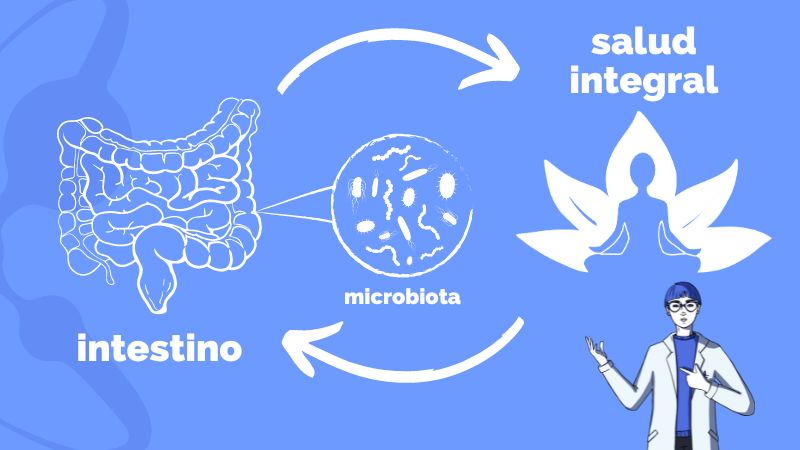Healthcare is a topic that encompasses multiple aspects of our wellbeing. However, we often tend to overlook digestive health, despite the fact that it plays a crucial role in our overall balance. On World Digestive Health Day, it is essential to reflect on the direct relationship between our digestive health and the overall health of our whole body. In this blog post, we will explore the importance of this day and how taking care of our digestive system can have a significant impact on our overall wellbeing, including the fascinating gut-brain axis.
The role of the digestive system in overall health:
The digestive system is responsible for processing the food we eat and converting it into the essential nutrients our bodies need to function properly. In addition to playing a vital role in the absorption of nutrients, the digestive system is also closely linked to other systems and organs in the body. In fact, it has been found that poor digestive health can contribute to a wide range of health problems, including cardiovascular disease, diabetes, skin problems, hormonal imbalances and mood disorders.
The importance of the gut microbiome and the gut-brain axis:
Within our digestive system resides a complex ecosystem of microorganisms known as the gut microbiome. These microorganisms play a crucial role in the digestion and metabolism of food, as well as in the regulation of our immune system. In addition, the gut microbiome has been found to actively communicate with the brain through a connection known as the gut-brain axis.
The gut-brain axis is a two-way communication network between the central nervous system and the gut, involving chemical, hormonal and immunological signals. This connection is fundamental to our mental and emotional health, and has been shown to play a role in the development of mood disorders such as depression and anxiety.
Nurturing the gut-brain axis for holistic health:
To promote holistic health, it is essential to take care of both our digestive system and the gut-brain axis. Here are some recommendations for maintaining a healthy balance:
- Mindful eating: Eating a balanced diet rich in natural, nutritious foods will benefit both our digestive system and gut microbiome. Including fermented foods, such as yoghurt or sauerkraut, can be beneficial in promoting a healthy gut microbiota.
- Probiotics, prebiotics and postbiotics: Probiotics are beneficial bacteria that can help strengthen and balance the gut microbiome. Prebiotics are fibres that act as food for beneficial bacteria. Incorporating probiotic foods, such as kefir or probiotic supplements, along with prebiotic-rich foods, such as garlic and onions, can support digestive health and the balance of the gut-brain axis. Postbiotics, including short-chain fatty acids (such as butyrate, acetate and propionate), are produced by the fermentation of carbohydrates by gut bacteria and have multiple health effects such as regulating gut function, reducing inflammation, protecting against colon cancer and improving energy metabolism. Butyrate is the most studied and most successful form for gut wellness.
- Stress reduction: Chronic stress can negatively affect both the digestive system and the gut-brain axis. Practising stress management techniques, such as meditation, deep breathing or regular exercise, can be beneficial in reducing the negative impact of stress on our digestive and mental health.
- Adequate sleep: Quality sleep is essential for overall health. Insufficient or poor quality sleep can negatively affect the balance of the gut microbiome and the functioning of the gut-brain axis. Establishing a regular sleep routine and creating an environment conducive to rest can have a positive impact on our digestive and mental health.
On World Digestive Health Day, it is essential to understand the direct link between our digestive health and the overall health of our whole body. Taking care of our digestive system and the gut-brain axis can have a significant impact on our mental, emotional and physical health. Through a balanced diet, incorporating probiotics, prebiotics and postbiotics, reducing stress and promoting a good night’s sleep.

